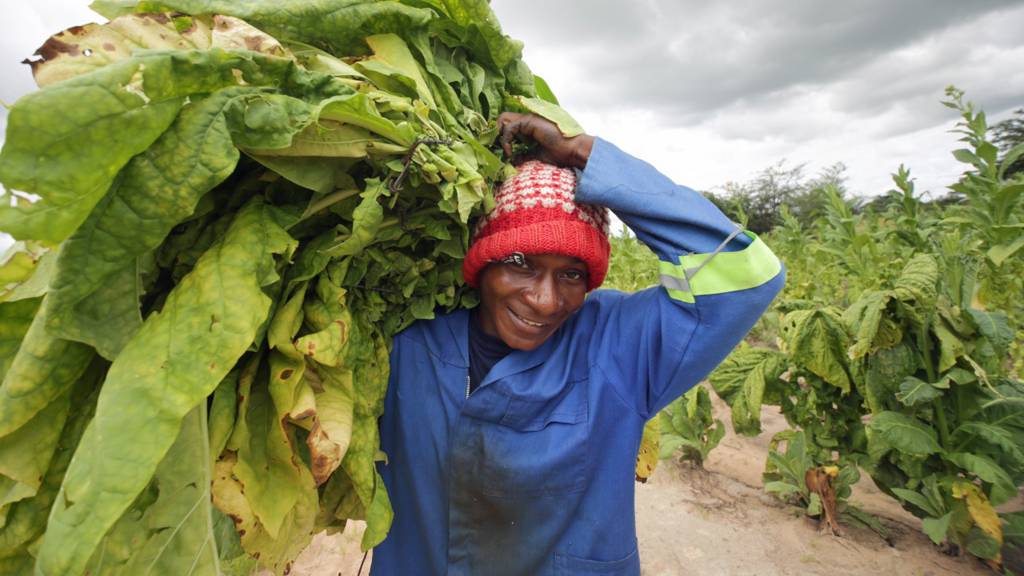
Live
Africa Live this week: 10-16 July 2023
Bringing you the latest news from around Africa at bbc.com/africalive. This is an automated news feed overnight and at the weekend.

Bringing you the latest news from around Africa at bbc.com/africalive. This is an automated news feed overnight and at the weekend.
Live Reporting
All times stated are UK
Get involved
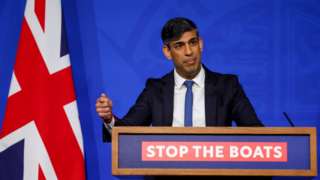
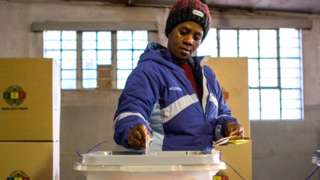
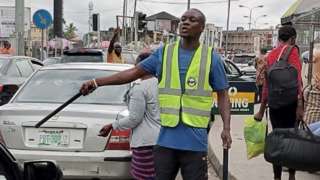
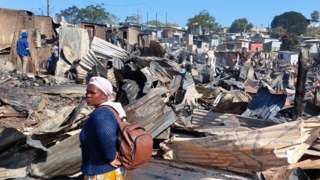


Ruby OkoroCopyright: Ruby Okoro 

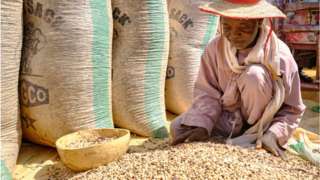

Getty ImagesCopyright: Getty Images 
Getty ImagesCopyright: Getty Images -
Training farmers on the production of coffee
-
Training youth on how to drink coffee
-
Providing financial literacy and business management skills
-
General project administration costs


BBCCopyright: BBC 
- 'I saw bodies dumped in Darfur mass grave'
- From Ruto to Sisi, leaders vie to drive peace process

ReutersCopyright: Reuters Wednesday's protests saw at least 10 deaths and hundreds of arrestsImage caption: Wednesday's protests saw at least 10 deaths and hundreds of arrests 

Getty ImagesCopyright: Getty Images Critics say the law will limit what Zimbabwean activists can say to foreign governments about their countryImage caption: Critics say the law will limit what Zimbabwean activists can say to foreign governments about their country 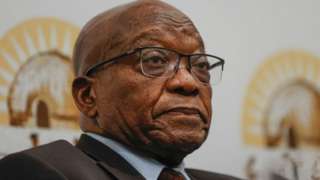


Getty ImagesCopyright: Getty Images Patriarch Abune Matthias had tried to meet Tigray bishops on a recent reconciliation missionImage caption: Patriarch Abune Matthias had tried to meet Tigray bishops on a recent reconciliation mission 

AFPCopyright: AFP Twenty-five million Nigerians are at high risk of food insecurity in 2023 according to a Unicef reportImage caption: Twenty-five million Nigerians are at high risk of food insecurity in 2023 according to a Unicef report 
Getty ImagesCopyright: Getty Images The ban had been in place since 2018Image caption: The ban had been in place since 2018
Latest PostWhat is the UK's plan to send asylum seekers to Rwanda?
The UK government has passed new legislation to let it send some asylum seekers to Rwanda.
Read moreWhat you need to know about Zimbabwe's elections
By Shingai Nyoka
BBC News, Harare
The BBC explores key issues in a vote that will test how far Zimbabwe has come since Robert Mugabe.
Read moreThis page is now closed
For the latest updates please go to bbc.com/africalive
Nigeria's 'tax collectors': Menacing and mafia-like
By Nduka Orjinmo
BBC News, Abuja
The tax system is opaque - and abused, with politicians and private citizens lining their pockets.
Read moreHundreds of homes destroyed in South Africa fire
By Joseph Winter
Africa Editor, BBC News website
At least one person is known to have died as a fire sweeps through a poor neighbourhood of Durban.
Read moreNigerian star Bloody Civilian reveals why she's so angry
DJ Edu
Presenter of This Is Africa on BBC World Service
Bloody Civilian is a Nigerian singer, songwriter and producer who has made quite an entrance to the music business.
In just eight months, she has caught the attention of everyone from Amazon and Apple Music to British Vogue and NME magazines.
Her first three songs, including the provocatively named How To Kill A Man and I Don’t Like You, have amassed over 11 million streams, and her track Wake Up, featuring Rema, was included in the soundtrack to the movie Black Panther: Wakanda Forever.
Her stage name gives you a clue that she is no ordinary individual.
She says the name Bloody Civilian was inspired by the military violence in her homeland in northern Nigeria.
Born Emoseh Khamofu, her parents moved to Abuja where she grew up. But she recalls getting calls from relatives in the north keeping them informed of what was going on there.
Bloody Civilian is not the only musician in her family. Her father is a bass guitarist and used to play gigs on the weekend. He wanted her to study music.
She says she creates her art based on her experiences and tries to be as honest as she can.
Her song How To Kill A Man was inspired by the anger of women which she believes is often censored. She cites examples of the way she has been treated in the past.
She also described a time she was shopping in a market in Kaduna and her headscarf slipped off her head, and someone called her a prostitute.
She says she called her latest EP Anger Management because she has many frustrations.
Bloody Civilian admits she toned down the EP due to the experience she had with her earlier singles.
One of the tracks that resonated with her the most while writing the songs was Family Meeting.
To hear the full interview with Bloody Civilian, listen to This is Africa on BBC World Service radio and partner stations across Africa, and online here:
How world-record mania has gripped Nigeria
By Nduka Orjinmo
BBC News, Abuja
Nigerians have inundated Guinness World Record with requests to ratify their attempts in the past two months.
Read more'My most painful loss' - tears flow again on Centre
By Matthew Henry
BBC Sport at Wimbledon
Ons Jabeur becomes the latest player to be overcome after defeat in a Wimbledon final as she labels Saturday's loss the "most painful" of her career.
Read moreNigeria declares state of emergency over food
By Azeezat Olaoluwa & Cecilia Macaulay
BBC News, Lagos & London
The president plans to provide protection to farmers targeted by notorious kidnapping gangs.
Read moreScroll down for this week's stories
We'll be back on Monday morning
That's all from the BBC Africa Live team for now, we will be back on Monday morning. There will be an automated news feed here until then.
You can also get the latest updates at BBCAfrica.com and listen to the new Focus on Africa podcast for stories behind the news
A reminder of the day's wise words:
Click here to send us your African proverbs.
And we leave you with this photo of Valentin Ndzana of Cameroon competing in the high jump at the Para Athletics World Championships in France, it's from our selection of some of the best pictures of the week.
Uganda spent money training youth to drink coffee - report
Ugandan officials from the Office of the Prime Minister (OPM) have been tasked to explain how $2.6m (£2m) was used on training youth "on how to drink coffee" among other things, according to a parliamentary watchdog.
In a statement on Twitter, the NGO Parliament Watch said that the auditor general noted a number of the coffee shops listed as part of the campaign did not exist.
The contract was broken down into four parts:
Director at OPM, Robert Limlim, defended the high costs the campaign saying it was about education and the money was spent on buying coffee equipment as well as bringing the youth into the coffee economy.
Uganda is one of Africa’s major coffee exporting countries, having shipped 5.7 million bags, worth $840m (£641m), in the 12-month period from June 2022, according to the Uganda Coffee Development Authority.
African 'shift' poses threat to US sprint dominance
Liberian Joseph Fahnbulleh explains there is a "shift" towards Africa on the sprint circuit.
Read moreNo peace without justice in Sudan - ICC prosecutor
Andre Lombard
BBC Focus on Africa, Nairobi
Karim Khan, the prosecutor at the International Criminal Court (ICC), has told the BBC that "there is no hope of peace in Sudan without some type of justice".
Speaking to Focus on Africa from the UN in New York, Mr Khan said "new generations of Darfurians are being inflicted with new violence that is no fault of their own".
It follows the news yesterday that the bodies of 87 people, allegedly killed by the Rapid Support Forces (RSF), were found in a mass grave in Darfur.
On Thursday, he announced that his office is looking atrecent atrocities in the Darfur region, as part of an on-going investigation.
The ICC have been investigating events there since 2005, after being referred by the UN Security Council.
He also said that he has seen no willingness from either side of the conflict to hand over former dictator Omar al-Bashir, who ruled the country for three decades.
Al-Bashir is wanted by the ICC for alleged genocide committed in Darfur during the first conflict.
Mr Khan said his office is launching a public appeal for those who have evidence of war crimes in Sudan to come forward.
You can watch the full interview on BBC Focus on Africa at 1730BST on the BBC News Channel.
Disturbing view from inside a Darfur clinic
Richard Hamilton
BBC World Service Newsroom
The medical charity Doctors Without Borders, MSF, has given a disturbing account of the increasingly desperate humanitarian situation in the Sudanese state of North Darfur.
The charity said more than 300 people had died in the state capital, Fasher, since the conflict started in April.
It added that its staff had treated more than 1,000 people for injuries and it's currently performing surgery on about five patients every day.
MSF said it had transformed a small maternity hospital into the main hospital for the whole of the state, which has a population of 2.8 million people.
Read more on the Sudan conflict:
Kenya president says no more opposition protests
In a strong warning to the opposition, Kenya's President William Ruto has said "protests will no longer take place in our nation. The one they have planned for Wednesday will not be possible."
He was speaking to supporters in Naivasha, central Kenya, two days after at least 10 people died during clashes between protesters and security forces.
Opposition leader Raila Odinga has launched a series of demonstrations against tax rises, including the doubling of the tax on fuel, that were signed into law last month.
"Elections ended on 9 August last year. You cannot look for the leadership of this country using the blood of the citizens, the death of the citizens and the destruction of property," Mr Ruto said .
"These demos will not happen. Listen to me carefully: you cannot use extrajudicial, extra-constitutional means to look for power in Kenya."
Mr Odinga had earlier said that next week will see three more days of protests beginning on Wednesday.
According to the constitution, people organising protests must inform the authorities of their intentions, but the president does not have the power to ban demonstrations.
Zimbabwe president approves controversial patriotic law
Shingai Nyoka
BBC News, Harare
Zimbabwe’s President Emmerson Mnangagwa has signed a bill into law that imposes penalties on Zimbabweans who are found to have wilfully harmed the sovereignty and national interest of Zimbabwe.
The controversial patriotic bill faced widespread opposition from lawyers and activists describing it as a grave assault on human rights.
It comes weeks before a crucial general election which the opposition believe will not be free or fair.
The law imposes sentences ranging from fines to the death penalty for those who take part in meetings which encourage international military action or trade boycotts.
President Mnangagwa and much of his inner circle are under US economic and travel sanctions which they say were a result of the opposition's lobbying.
Legal analysts believe the new patriotic law is vague and therefore open to abuse.
SA ex-leader Zuma in Russia for medical reasons
The announcement comes a day after a court ruled he was released from jail on parole unlawfully.
Read moreEthiopia church tries to head off potential Tigray split
Teklemariam Bekit
BBC News Tigrinya
The Holy Synod, the top decision-making body of the Ethiopian Orthodox Church, is trying to head off a possible split in the community with followers in the northern state of Tigray.
At the root of the problem is the church’s reaction to the two-year civil war, mostly fought in Tigray, that ended last November. The conflict led to the deaths of hundreds of thousands of people and sparked a humanitarian crisis.
Criticism had been directed towards the church from bishops, priests and believers in Tigray for not condemning the war.
The bishops of Tigray announced in March that they wanted to separate from the Holy Synod.
On Sunday, they plan to ordain 10 new bishops in the region.
The Holy Synod has asked the federal and regional governments to halt this process citing a violation of the church constitution.
This request was made in a statement issued on Thursday after a two-day emergency session held by the Holy Synod.
It criticised the Tigray bishops and scholars for disregarding the established organisational structure and bypassing peaceful dialogue.
Last week, the Holy Synod issued an apology to the people of Tigray in connection with the civil war – but it does not appear to have been enough.
As part of the reconciliation efforts, a delegation of bishops, led by the Patriarch Abune Matthias, recently travelled to the Tigrayan capital, Mekelle, to engage in discussions with the leaders of the regional government and the church.
However, the meeting with the regional church fathers did not take place.
Nigeria declares food-shortage state of emergency
Azeezat Olaoluwa
BBC News, Lagos
Nigeria's President Bola Tinubu has declared a state of emergency on food security to address ongoing food inflation.
Immediate, medium and long-term interventions have been designed by the government to combat the shortages. These range from providing fertilisers and grains to farmers and households to assigning responsibility for food and water to the National Security Council.
The government plans to allocate funds from the fuel subsidy removal to support the agricultural sector and establish a National Commodity Board to regulate and stabilise food prices.
President Tinubu emphasized the initiatives' goals of reducing food costs, promoting agriculture and generating employment opportunities.
In a post on his Twitter handle, President Tinubu said that the "new initiatives will tackle rising food costs, enhance agriculture, and boost job creation".
"No-one will be left behind in our efforts to ensure affordable, plentiful food for every Nigerian," he tweeted.
Earlier in the month, a former governor in northern Nigeria expressed concern that the country may face a food crisis soon due to banditry in the North.
The International Monetary Fund warned of increased food prices and risks due to floods and expensive fertilisers.
Kenyan forests invaded since end of logging ban - minister
A Kenyan minister has accused people of invading forests and breaking the law by doing things like charcoal burning since the lifting of a ban on logging was announced earlier this month.
Environment Minister Soipan Tuya said "the lifting of the ban only applies to commercial forests" and involves less than 8% of the tree cover in the country.
“We have Kenyans who think the forests are free for them to go and erect structures and engage in illegal activities as well as lease out forest land,” Ms Tuya added.
President Ruto said the logging ban was lifted in order to create jobs and open up sectors of the economy that depend on forest products.
The move came as the government pushes on with its plan to plant 15 billion trees over 10 years to increase the country's tree cover.
Listen to this episode of Africa Daily for more on the debate around the ban.